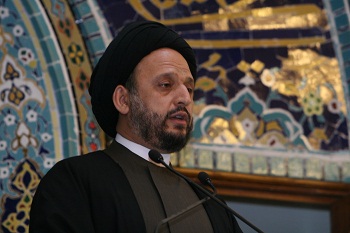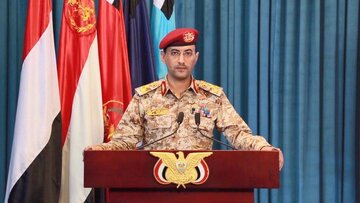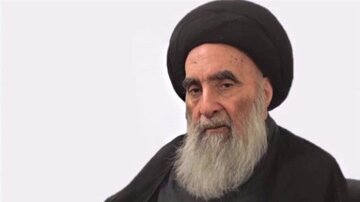His Eminence, Sayyed Ali Fadlullah, delivered the two Friday prayer sermons at the Imamain Al-Hassanain Mosque, Rabi’ I 4th 1436 H. – December, 26th 2014. Several prominent religious scholars, dignitaries and thousands of believers attended the Jumu’a prayer.
We would like, on the anniversary of the birth of Jesus Christ (a.s.), to seize the opportunity to reinvigorate the concept of the nation of believers that the Quran introduced and the Messenger applied in the first Muslim community. This concept is more important these days in which Takfiri and fanatic movements that seek to cancel all the others surround us. On the other hand, there are certain atheist movements that are trying to remove the idea of Allah from the hearts and minds of both Christians and Muslims.
This state of affairs impels us to transcend the familiar literature we are used to, especially in Lebanon, and move towards an integrated system that we believe the Glorious Quran has put the basis of in a way that allows us to build on it. The Quran has explained that both Islam and Christianity and other Heavenly religions have come from the same source that they are based on the principle of the continuity of Prophethood and that each complements the others. There is no separation or contradiction, for every message gives credibility to the ones before and completes them, meaning that it comes to address the needs of humanity that came to being after the one before it.
Thus, when the Quran talked about the Message of the Messenger of Allah (p.), it said: “Allah, (there is) no god but He, the Ever-living, the Self-subsisting by Whom all things subsist. He has revealed to you the Book with truth, verifying that which is before it, and He revealed the Tawrat and the Injeel aforetime, a guidance for the people, and He sent the Furqan. Surely they who disbelieve in the communications of Allah shall have a severe chastisement; and Allah is Mighty, the Lord of retribution” (03:2-4).
When contemplating the Quran, as well as the biography of Muhammad, one would see that the relationship between Islam and Christianity in particular has been meant, since the dawn of Islam, to be established on the basis of concord and unity. What is interesting in this respect is that the Quran was concerned with having this relationship founded on feelings and not merely on doctrinal issues. Thus, it demonstrated the spiritual and moral attributes which contribute to establishing a strong relation of coexistence between the Christians and the Muslims.
Allah, the Most Exalted, says: “And you will certainly find the nearest in friendship to those who believe (to be) those who say: We are Christians; this is because there are priests and monks among them and because they do not behave arrogantly” (5:82).
This established the basis of homogeneity, brotherhood and equality: believing in Allah and worshipping Him. Islam has constantly called for dialogue with Christianity especially on the points of differences which Islam did not deny. Rather, Islam pointed out to these differences, whether with regards to the “trinity” or the crucifixion of Jesus. It also defined the method of conducting this dialogue “and argue with them with what is best” and: “And do not argue with the people of the Book except with what is best”. This method aims at creating a strong relationship based on common terms: “O People of the Book! come to common terms as between us and you”, headed by the notions of worshipping Allah and only Allah and justice in which no one subdues to the other: “That we worship none but Allah; that we associate no partners with him; that we erect not, from among ourselves, lords and patrons other than Allah” (5:64). This relationship that was instituted by the Glorious Quran and practiced by the Messenger in his deeds, stances and legislations has consolidated cooperation, mutual respect and security, which resulted in preserving the Christian presence in the Muslim lands. The feuds that used to happen every now and then were political in their essence and not religious or doctrinal.
Following are certain incidents that took place in the Prophet’s era that will help in describing what we said on the ground.
The first incident has to with respecting faith: When a delegation of the Christians of Najran came to Medina seeking dialogue with the Messenger (p.), they entered the Messenger’s Mosque wearing the crosses on their necks. Moreover, before they started their dialogue, they asked his permission for prayer, and he obliged. They rang the bells in the Mosque and prayed in front of all Muslims. Does that not indicate the depth of the relationship that the Messenger and Islam sought? The Messenger conducting a dialogue with the Christians in the Mosque, with the Christians praying inside it. Does this incident not suggest how much we lag behind the image Islam wanted the relations with the Christians to be built on?
The second incident was emotional solidarity manifested by the sadness the Muslims felt when the Roman Christians were defeated, yet Allah assured them that they were going to win a few years later, and added that “the believers would then be happy”.
Another incident and probably the most significant one regarding the security and strategic levels was when the Messenger sent the Muslims to Abyssinia, telling them that there they will find a king in “whose land none is treated unjustly”, and that “it is a land of truth, so that Allah will make you a way out of the situation you are in”.
The Head of the Muslim delegation to Abyssinia read to the King, who was a Christian, the verses about Virgin Mary and Jesus Christ in the Quran. There reaction was, according to the Quran: “And when they hear what has been revealed to the Messenger you will see their eyes overflowing with tears on account of the truth that they recognize; they say: Our Lord! we believe, so write us down with the witnesses (of truth)” (5:83). Is there a feeling more sublime than the feeling that the Christians have shown to the Muslims when they knew how to present Islam and how to adopt its morals?
These are but a few examples on how Allah wants us to establish our relations with the People of the Book in general, and the Christians in particular. They are shining examples on the collective spirit of this religion and its civilized Message.
To conclude, we say that in these tough circumstances, we look forward to having both the Muslims and Christians shoulder the big responsibility of working together on the two lines that constitute the basis of the nation of believers: Believing in God and reviving the morals of the Heavenly religions. We have to work together on the basis of the several common factors we enjoy to strengthen the presence of Allah in the life of man, so that the individual will not be overwhelmed by selfishness and the society will not be drawn to internal strife. We are also called on to confront all the aspects of tyranny and arrogance wherever they might be, for the Heavenly Messages were revealed to save man, bring back justice to life and stand against all those who exploit religion for their personal interest.
/149





